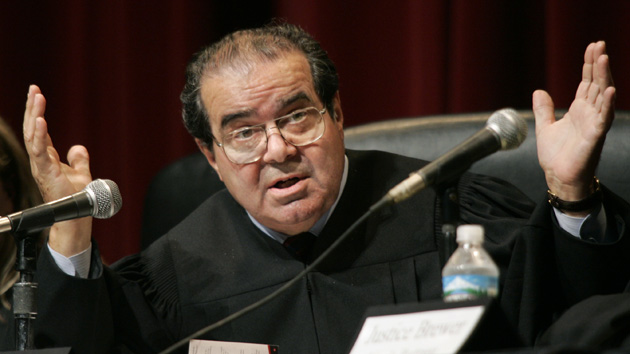If you’re an NFL quarterback, you’ve reached the pinnacle of your profession. There’s nowhere left to go except down the ladder or into retirement. It’s the same with CEOs like Mark Zuckerberg, Bill Gates, or Warren Buffet. As President, Barack Obama has hit the peak of his political career.
There’s nothing left to do (career-wise); these people have shown through physical or intellectual ability and hard work that they are the most capable in their job field. For a lawyer or judge, the top of the ladder is Supreme Court Justice. Likewise with Supreme Court Justices: they are the capable-est, the intelligent-est, the wisest among all lawyers.
And we know that even the mighty are capable of significant failures in their field. Ask Russell Wilson about throwing an interception on the goal line or Tim Cook about the i-Mac. You would expect a Supreme Court Justice to have his legal affairs in order, but as Chief Justice Warren Burger showed us, even a top legal mind can fail to implement the most basic estate plan.
Justice Antonin Scalia was found dead on February 13, 2016, while on vacation in Texas sparking a firestorm of speculation and posturing on both sides of the political aisle. And while we have yet to hear what Justice Scalia’s estate plan looks like, it seems clear that his professional legacy is firmly fixed.
Justice Scalia is widely known as one of the best writers to ever serve on the Supreme Court (for example: 1 | 2 | 3 ). Whether people agree or disagree with his conclusions, many read his opinions for the pure entertainment of it. Some of my favorite cases to read in law school were Scalia opinions.
Between phrases like “jiggery-pokery” (King v. Burwell) and terms like “pussyfoot,” (Agency for Int’l Dev. v. Alliance for Open Soc’y Int’l, Inc.) Scalia is known for calling the positions of litigants and his colleagues “a cloud of obfuscating smoke” (McCreary County v. ACLU), and for using witty repartee: “Our Religion Clause jurisprudence has become bedeviled (so to speak)…” (Lee v. Weisman)
Justice Scalia was a conservative judge in the literal sense: he often wrote opinions – majority, concurring, and dissenting – questioning any effort to expand the law beyond its written words. He was a staunch originalist, believing the U.S. Constitution to be a fixed document.
He went so far as to say the Constitution is “not a living document,” but is “dead, dead, dead.” (see this speech at Southern Methodist University )
Like many others, I enjoyed Justice Scalia’s sarcastic writing style even though I may not have always agreed with his conclusions. But Justice Scalia himself didn’t always like his conclusions. In that same speech at SMU, he told the audience: “The judge who always likes the results he reaches is a bad judge.”
I want to leave you with a suggestion. Let Justice Scalia’s legacy inspire you. Be indelibile. Be consistent. Make memories with your family and coworkers. In Scalia’s own words: “Be fools for Christ. And have the courage to suffer the contempt of the sophisticated world.”


